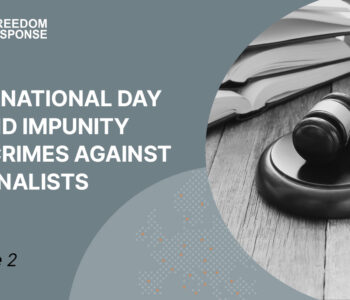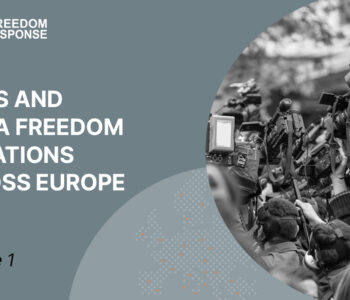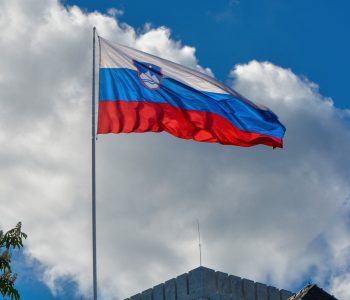 Library
Library
After Czech elections, new push for public media independence…
After Czech elections, new push for public media independence (HlídacíPes)
Vojtěch Berger, HlidaciPes.org
The nationalization of the Czech Television and the Czech Radio has not taken place yet. On the contrary, they are to receive a “vaccine” against political pressures, writes HlidaciPes.org.
Back in September, just before the parliamentary elections, then-Czech Prime Minister Andrej Babiš attacked Czech Television for allegedly “dividing society” during the pandemic. The far-right SPD movement spoke openly about its plan to nationalize both Czech Television and Czech Radio. However, after the elections, in which Babiš lost and the radical populists remained behind their own expectations, everything is (somewhat unexpectedly) different. After many years, there is a chance to cut the public media as much as possible from political influence.
MPs could get draft amendments to the acts on Czech Television and Czech Radio to be examined and scrutinized in the coming months. Senator David Smoljak is involved in their drafting, along with the Endowment for Independent Journalism and a non-profit organisation, Reconstruction of the State. The changes in the acts concern, in particular, how media councils, which in the Czech Republic serve as a “buffer” between political power and editorial independence of public-service media, are formed and elected.
“Firstly, they should strengthen the diversity of the Council, so that it is not elected by only one chamber of the Parliament, which has been the case so far, and thus it is not absolutely dependent on the current winner of the election. There is an emphasis on the competence of the councillors and on the reviewability of their decisions,” Smoljak lists the main objectives of the acts.
Smoljak spoke about the preparations for the amendments last year, but he assumed that the Parliament, in its then composition, would not approve such changes. The past year and a half showed the weaknesses of the current system of nominating and electing the members of the media councils. This is true for both the television and radio councils.
A significant number of the Czech Television Council members have been replaced in the last two years when, after last year’s election of six new members, another five out of a total of fifteen were to follow this year. The nominations of candidates, as well as the selection of the finalists, often noticeably correlated with the parliamentary voting alliance of the ruling ANO movement, the far-right SPD and the Communists.
This alliance often selected candidates without the necessary expertise, but with an openly hostile attitude towards, for example, the management of Czech Television. In the Television Council in particular, this led to the Council meetings becoming hours-long skirmishes between some of the councillors and the Director General, instead of the councillors addressing the control agenda that appertains to the Council members.
It was precisely because of the doubts about the competence of the candidates supported by the ANO government that this spring, the then-parliamentary opposition decided to block the election of four new members of the TV Council by obstructions, resulting in its being incomplete for several months.
Elections also interfered in the staffing of the media councils this year when some councillors themselves decided to run for Parliament. One of the councillors resigned because of this, while another councillor was removed. The act foresees that councillors are not to work for the benefit of any political party. However, the resignation/removal of two councillors has contributed to the vacancies in both of the councils, namely in a situation whereby the Parliament has been unable to elect new councils members due to the obstructions and the upcoming elections.
The aforementioned amendments to the Czech Television and Czech Radio acts therefore prefer to expressly ban councillors from running for political office. However, they bring about an even more fundamental change elsewhere: After twenty years, the acts change the very manner in which media councillors are recruited in the Czech Republic and who is allowed to nominate them and who elects them.
While today any social organization or association – even an absolutely marginal one or one that was founded briefly before the nomination – can send a candidate to the council, the amendment stipulates that the nominating organization would have to have at least a decade-long tradition. They would also have to have been active for a long time in one of an exhaustive list of fields, such as, in addition to the media, culture, trade unions, education, science and protection of human rights. According to the authors of the act, this is a safeguard to ensure that “only active entities, and not ‘shell companies’, nominate the candidates”.
The amendment also sets a minimum threshold of expertise for councillors themselves. They should have experience holding a senior position in public administration or a private company and be knowledgeable in fields such as economics, law or finance or management and, of course, the media.
“There was no political support for the German form of the act,” Senator Smoljak said on the examination and scrutiny of the amendment so far, referring to the way media councils are formed in Germany. What is common there is an enumeration of specific social organizations that are allowed to nominate candidates to the councils, for example churches or trade unions.
Another major change is the election of television and radio councillors, which is now entirely in the hands of the Chamber of Deputies. Under the new arrangements, half of the councillors would be chosen by the Chamber of Deputies and half by the Senate at each election. At the same time, the number of councillors would be reduced to 12 for the television council and to six for the radio council.
However, according to David Smoljak, this would also mean building both councils on a completely new basis. In other words: removing the existing councils, with their current members. “My view is, and not everyone agrees, that when this act comes into force, the existing council should end and a new one should be created because it is difficult to combine that,” Smoljak confirms.
But even if the media acts arrive to the Chamber of Deputies soon, it will probably take many months before the Chamber of Deputies discusses them. The aforementioned vacant positions on the Council of the Czech Television and one position on the Council of the Czech Radio will have to be filled much earlier. And even that could be a problem.
When the election committee of the Chamber of Deputies selected the 12 finalists – candidates for the Television Council – in the spring, some media experts failed to be selected, while open critics of the current management of the Czech Television got the green light. The then-opposition, which became the government majority after the October elections, resorted to the aforementioned obstructions and prevented the election.
The option now is for MPs to start the whole election once again. “Now the election committee has a new composition and the same applies to the whole Chamber of Deputies, so the process will have to be done again,” says Senator Smoljak. Petr Gazdík, the deputy chair of the STAN movement and a member of the election committee in the previous Chamber of Deputies, feels the same way: “In my opinion, nominations and selection should start from the beginning.”
However, representatives of the ANO movement, which led the election committee for the past eight years, disagree. “I don’t like it, but I can’t do anything about it, I have to respect it. I’m curious to see how the former ‘democratic opposition’ will behave now. Whether they outvote us by force and push through their 12 members in the committee,” said Martin Kolovratník, a deputy and member of the committee for ANO.
“In addition to the fact that it’s not all that fair, it also involves a risk that the same obstructions may occur which would replicate the previous obstructions. Looking at it this way, the council is actually unelectable forever,” said another ANO MP, Patrik Nacher, criticizing the announcement of new elections for the television council.
The amendments to the act on Czech Television and the act on Czech Radio, however, envisage other significant changes. Not only the decisions of the councillors themselves, but also their election or dismissal by the Parliament should be subject to judicial review. The review would be carried out by the Supreme Administrative Court.
In addition, the acts also address the issue of sustainable funding of Czech Television and Czech Radio. The Act on radio and television license fees proposes to insert a procedure for adjustment of fees so that they are automatically increased on a regular basis by the current inflation rate announced by the Czech National Bank for a specific calendar year.
The draft act is now undergoing final examination and Senator Smoljak claims that public service media “have priority”. Whether this will remain the case in light of all the gigantic problems awaiting the new government – from COVID-19 and the national debt to expensive energy – remains to be seen in the coming months.
This piece is part of a content series on threats to independent media in Central Europe in collaboration with leading independent media in the region. Read more.







